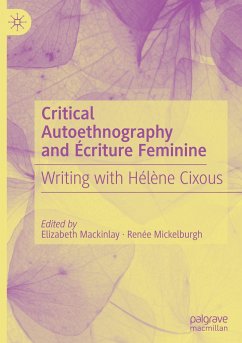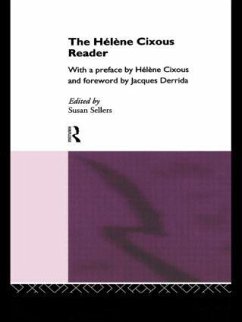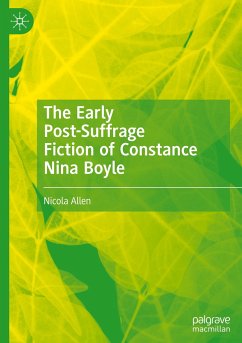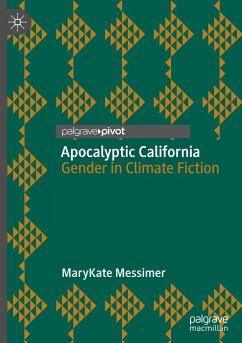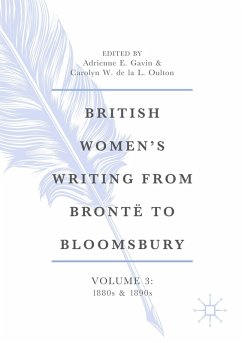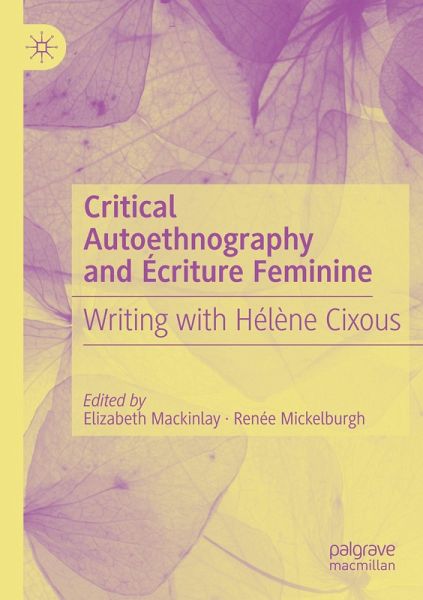
Critical Autoethnography and Écriture Feminine
Writing with Hélène Cixous
Herausgegeben: Mackinlay, Elizabeth; Mickelburgh, Renée
Versandkostenfrei!
Versandfertig in 6-10 Tagen
98,99 €
inkl. MwSt.

PAYBACK Punkte
49 °P sammeln!
The project offers a collection of new interdisciplinary critical autoethnographic engagements with Hélène Cixous écriture feminine and work Three steps on the ladder of writing. Critical autoethnography shares a reciprocal, and inter-animating relationship with Hélène Cixous' écriture feminine ("feminine writing"), and in this collection authors explore that inter-animation by explicitly engaging with Three steps on the ladder of writing. Three steps is a poetic, insightful, and ultimately moving reflection on the writing process and explores three distinct areas essential for writing: ...
The project offers a collection of new interdisciplinary critical autoethnographic engagements with Hélène Cixous écriture feminine and work Three steps on the ladder of writing. Critical autoethnography shares a reciprocal, and inter-animating relationship with Hélène Cixous' écriture feminine ("feminine writing"), and in this collection authors explore that inter-animation by explicitly engaging with Three steps on the ladder of writing. Three steps is a poetic, insightful, and ultimately moving reflection on the writing process and explores three distinct areas essential for writing: The School of the Dead-the notion that something or someone must die in order for good writing to be born; The School of Dreams-the crucial role dreams play in literary inspiration and output; and The School of Roots-the importance of depth in the 'nether realms' in all aspects of writing. Topics covered include: ways Cixous' work can address the need for loss and reparation in writing critical autoethnography, how Cixous' writing "makes our body speak" through concepts of birth and the body in, through and of critical autoethnography, whether writing in this way recast and reform prevailing orders of domination and oppression, and how Cixous' writing around the ethics of loving and giving translates into response-able and non-violent forms of critical autoethnography in relation to otherness and difference. In this collection, we invite you to "Let us go to the school of [critical autoethnographic] writing" (Cixous, 1993, p. 3) with the work of Hélène Cixous, and speak in a different way and through a different medium of academic language, in an approach that reveals the tensions, the paradoxes, the pains and the pleasures of writing with critical autoethnography in the contemporary university.



